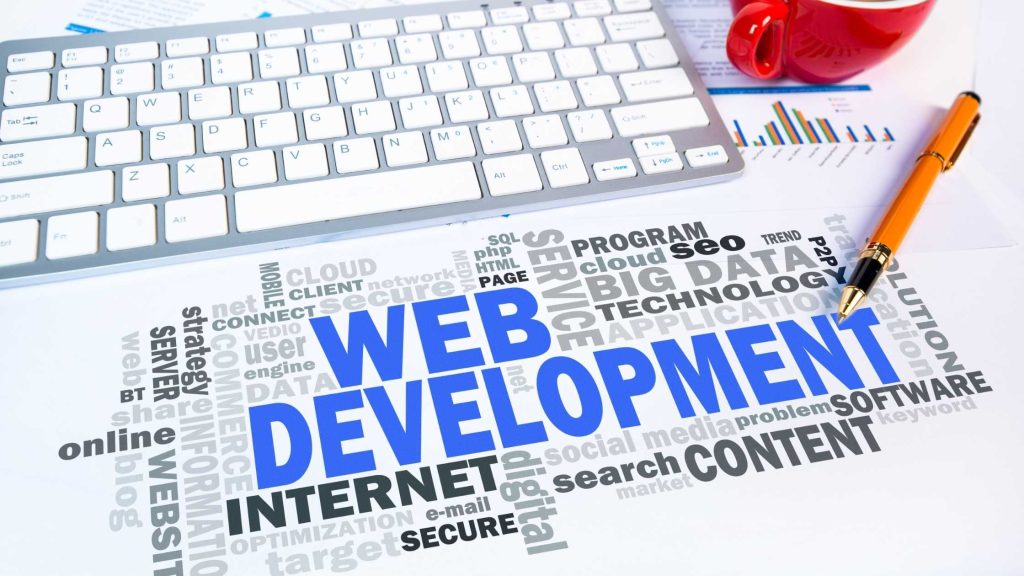Introduction
There has been a need in Enterprises for creating and modifying their digital Real Estate without getting into the codebase of it, due to which CMS web development services that allow that have become essential. If you’ve wanted to update your website or launch a new site, chances are you’ve wondered: CMS or custom coding; that is the question. They both have their strengths, and the answer ultimately depends on your budget and purpose.
Custom sites offer complete control over design, functionality, and every detail. They tend to be more technical, take more time to complete, and can be expensive. Less than ideal if you’re in a rush or a small team. While CMS platforms like WordPress or Webflow are much easier to work with. You can update things yourself, launch faster, and skip the stress of hiring a big team. It is perfect for small businesses, especially when you’re trying to grow without hiring a big team.
Recognizing these differences from the start can eliminate technical debt down the road. In this blog post, we’ll dissect the truths about CMS web development services and what sets them apart from conventional practices so you can make the right move, actually an SEO-savvy and future-proof one for your next web project.
What is CMS Web Development?
CMS Web Development Services involves the process of creating and managing a website with the help of CMS platforms like WordPress, Joomla, and Drupal. They have designed an intuitive admin dashboard for no-tech users, such as marketers, writers, and business owners, to manage their content without touching a line of code. Which is what CMS-based development is about, and that’s the whole point, being the centre of everything.
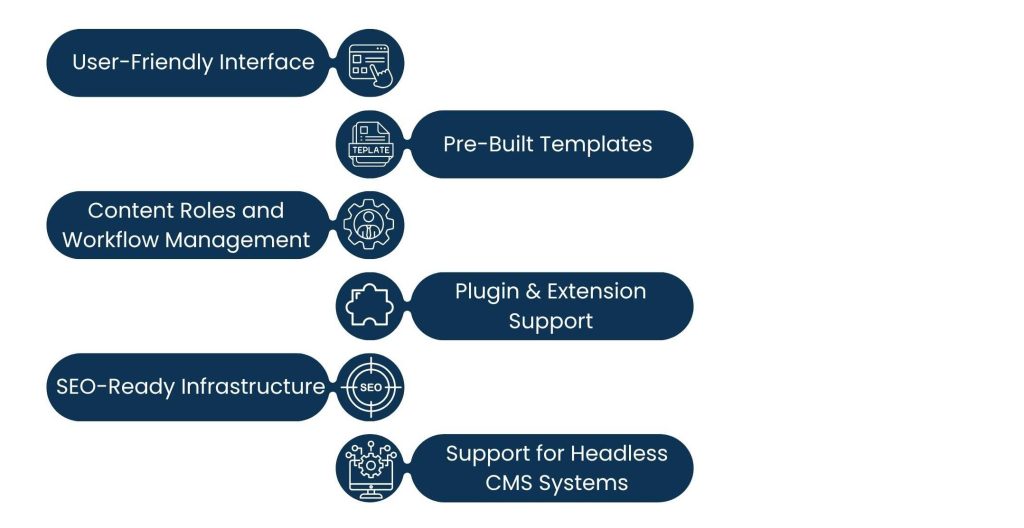
Key Features of CMS Platforms:
1. User-Friendly Interface
Many CMS platforms have drag-and-drop features, allowing you to create and update webpages with ease.
2. Pre-Built Templates
Choose from thousands of mobile-responsive templates to quickly build a dynamic website and keep the look consistent across every page.
3. Content Roles and Workflow Management
Grant user roles such as editor, contributor, or admin so content teams can work together within your design.
4. Plugin & Extension Support
Enhance the site, no custom coding needed, with a growing portfolio of extensions including SEO tools, marketing, and e-commerce.
5. SEO-Ready Infrastructure
Organic visibility: Built-in meta fields, clean URLs, XML sitemaps, schema markup support, make sure your site ranks well in search engines.
6. Support for Headless CMS Systems
For companies that are interested in decoupled architectures, most of today’s CMSs offer headless configurations for performance and omnichannel fulfillment.
What CMS Web Developers Do:
- Personalize themes and templates to fit your company identity.
- Implement CMS platforms for speed and scale.
- Add external services like analytics, payment gateways.
- Develop custom features or extend existing plugins.
- Keep your website fast, secure, and online.
CMS development is perfect for features that call for frequent content refreshment, team content collaboration, or extremely fast content deployment. Whether you’re starting a blog, managing a portfolio, or building a dynamic marketing site, CMS web development allows you to do all of the above, without starting from scratch.
We’ll look at how this compares to traditional web development later, as well as why picking the right path depends on your business’s goals, growth, and technical skills.
What Is Traditional Web Development?
Traditional development will build websites and web applications from scratch using fundamental programming languages such as HTML, JavaScript, or even more complex frameworks. It’s a method that virtually makes everything custom, from the frontend to the backend!
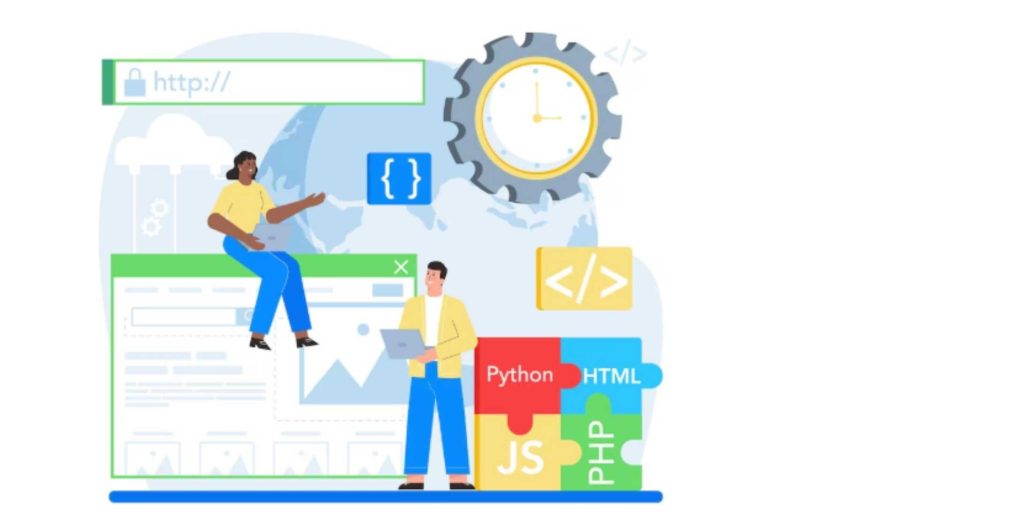
Key Characteristics of Traditional Development:
1. Custom UI/UX Design
Without templates to hold you back, bespoke design provides you with pixel-perfect designs developed to match your brand exactly and to achieve your user journey objectives.
2. Tailored Backend Systems
Developers can extend it with custom functionality in databases, API, logic, and customizations to handle complex workflows or enterprise-grade systems.
3. Greater Control Over Codebase
Things are custom-built, which gives more control over performance, scalability, and integration with other business systems.
4. Developer Dependency
Unlike CMS platforms, that include even text updates, usually need the help of a developer (unless you have a custom CMS).
5. Longer Time to Market
With a blank canvas and free from existing infrastructures, conventional development may also be a longer process, taking longer to plan, design, develop, and test.
6. Perfect for web applications that perform at Scale
For such platforms such as SaaS products, complex dashboards, fintech portals, or custom CRMs, the traditional approach is most suitable as no CMS would exactly fit the rack for the abovementioned types of content.
Limitations of Traditional Development:
1. Content Teams Slow to Adapt
With no content editor or dashboard, marketing and editorial teams are heavily dependent on dev teams to update content, which in turn can slow down a campaign.
2. More Expensive and More maintenance overhead
The more development time also means higher upfront costs, and ongoing maintenance often needs a dedicated team or retainer as well.
3. Hard to Scale Non-Technical Workflows
If you have a business that regularly updates content and publishes blogs, etc, then this method may be time-consuming.
When to Choose Traditional Development:
- You’re building a crazy customized platform or product.
- Full control over the architecture and performance of sites is a must.
- You have a development team available to implement updates and maintain them.
- You don’t anticipate regular changes of content by non-technical users.
What’s the difference between CMS web development and traditional development?
Unlike CMS web development services, a traditional development approach isn’t easy. It’s about accurate and tailored websites. It’s great for businesses with specialized, professional needs, but not the fastest or most agile path for most content-driven websites. Next up, we get both methods head to head to help you decide which is right for YOU and your objectives.
Although many aspects remain the same, there are several key differences between CMS and regular web development.
If you want to have a website that is fast, flexible, and easy to use, then CMS website development is the best choice for you. It is particularly good for a site that involves a lot of content that marketing or editorial teams need to change frequently, and for which they cannot rely on a developer for each and every change.
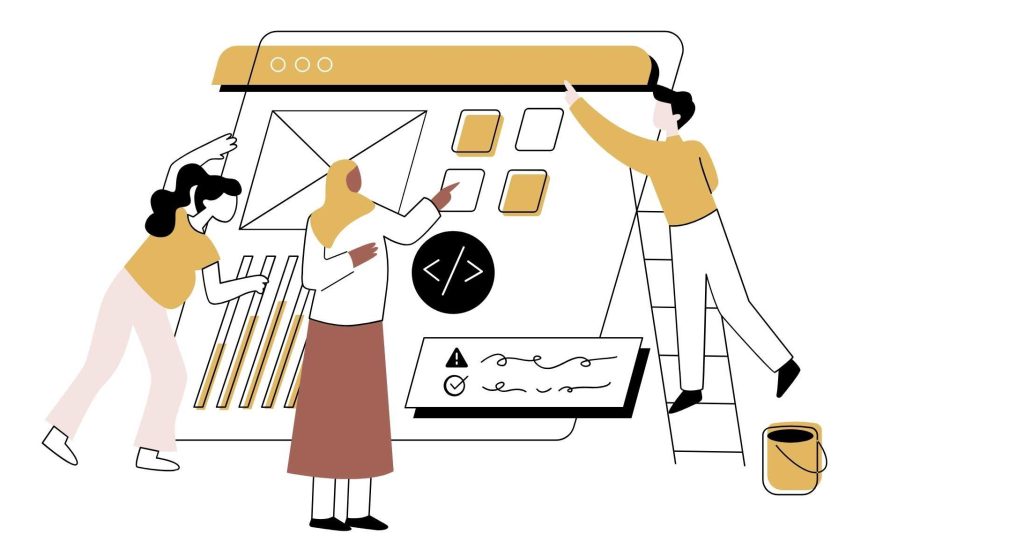
What teams can do using These Platforms like WordPress, Joomla, or Webflow:
- Get to launch faster with ready-made templates.
- Customize with no coding required.
- Install plugins to rapidly extend functionality.
- Grow content operations in a way that lifts the technology burden and website management.
- Lower development costs and perfect for SMBs and content-focused platforms
On the other hand, conventional web development is great when your website or platform requires some kind of special functionality (custom CMS), performance tuning/controlling, or deep integrations.
It’s the best fit if your business needs:
- Control every function and feature with power-packed video and audio editing professionals.
- Custom workflows, backend processes, or rich dashboards.
- Increased performance optimizations.
- Advanced BI tools and API integrations built by you (or via custom dev next to you).
- Enhanced data security with sensitive material handling.
Startups typically start on affordable CMS platforms like everyone else for speed and budget, but when they scale up or need to originate specialized technical infrastructure, they make the switch to algorithmic or hybrid solutions. This is where Headless CMS solutions fit in, marrying the marketing simplicity of a CMS with the customization control of custom builds.
Ultimately, CMS development operates at a pace that lets marketers be fast on their feet, while traditional development lets developers construct rock-solid, scalable tools. It’s not a matter of picking one and being stuck with it forever, so much as finding something that satisfies what your business needs right now and in the future.
When to select CMS Web Development Services?
It’s better to choose CMS website development services if your site or app will be content-oriented, needs to be updated from time to time, and will be administered by non-technical folks. CMS platforms are extremely user-friendly and fast, as they are a great option for companies that need a web page quickly and for those that don’t want to keep their development team around any longer than they have to.
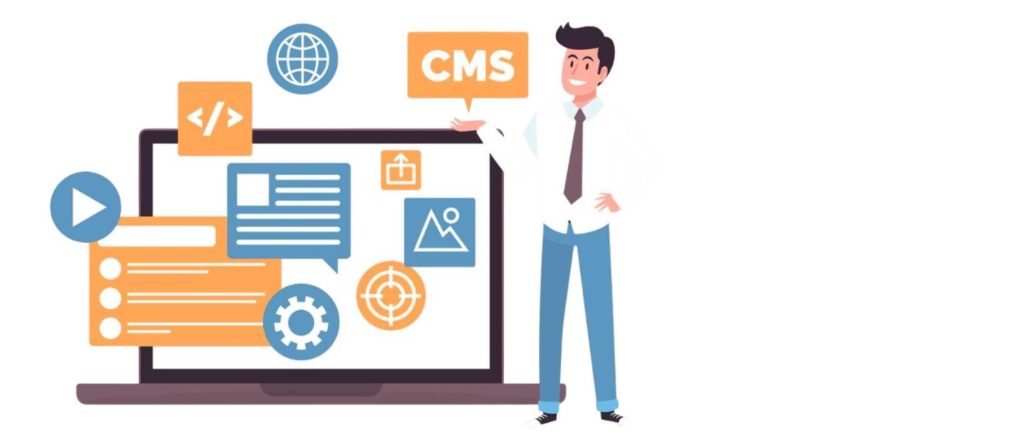
When CMS Is the Right Choice. Here’s when you might want to choose a CMS instead:
- You’re a scrappy little team: A CMS like WordPress or Webflow that allows marketers, designers, or writers to quickly create and manage pages without having to touch any code (either write it or edit it).
- You’re all about that content marketing: If you are the sole creator for blogs, landing pages, case studies, and SEO-driven pages at the core of your business, you can (and should) be doing it better with a CMS for publishing.
- You need an expedited launch: With themes and plugins, a CMS website can be brought to market in days or weeks.
- You have a budget: Using CMS platforms, you’ll save quite a bit in development and maintenance without having to compromise on the core features that benefit your goals.
- Use marketing tools: Frequently, email services, CRMs, popups, and tools for SEO offer their plugins or come with a CMS integration.
If you want to be nimble, save costs, and empower your non-tech team to make edits, CMS is the way forward.
When to Go With Traditional Web Development
CMS platforms are versatile and easy to use, but there are times when old-fashioned web development is necessary because you want a complex and tailor-made product, the security and performance of which you don’t have to doubt. With custom websites, you’re able to decide everything about your site yourself: it’s build, its technical stack, and its functions, so it can cater to whatever complex or enterprise-grade requirements your business might have.
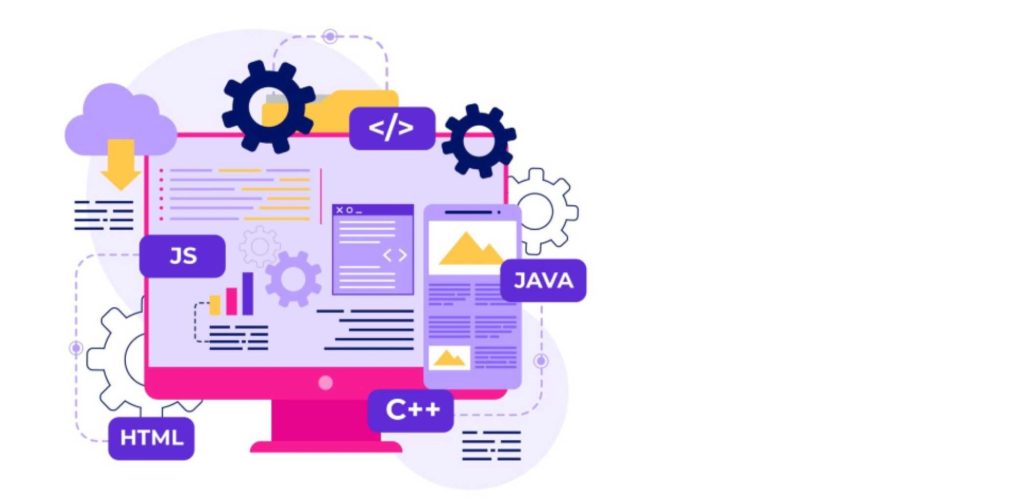
Traditional is a better fit if:
- You have a product or a web app in the works: Saying that From a SaaS platform to a unique portal or an interactive explorer, you can define your features, business logic, and customize user flows.
- You need heavy third-party integration: Whether you’re integrating with third-party APIs, internal tools, or even just unique business processes, you might need back-end customization that CMS tools can’t offer.
- You desire more security: If you’re holding a lot of sensitive data (like in health care or fintech) or you just want tighter governance on how your data is managed and accessed, custom development is the safer play.
- Performance is key: When writing custom code, you can optimize each part of the codebase.
- Your design needs are one-of-a-kind: For a custom user interface or experience, CMS templates can be confining.
It costs more to develop, and takes longer, but you get a super custom, future-proof piece that delivers exactly what you are striving for in business process and application performance.
What is a headless CMS?
As digital experiences grow more and more intricate, businesses are beginning to look towards Headless CMS solutions, a robust hybrid middle ground that offers the best of both worlds – the flexibility to make use of a CMS, and the power to customize in the way that traditional development can. Unlike standard CMS platforms that bundle front-end and back-end together, headless CMS splits the two, connecting them with an API, and developers have more control of where and how their content ends up.

How a Headless CMS Works:
- Content is defined and managed in a single source of truth (Contentful, Strapi, Sanity).
- The front end ( website / mobile app, etc. ) calls the content and renders the content in its layout or app through the API.
- This separation makes it possible to reuse the content for all sorts of digital distribution points — websites, mobile apps, internet-of-things devices, digital kiosks, and more.
Why are businesses embracing it?
- Omnichannel delivery: Single source of content accessible in websites, mobile apps, and even Internet of Things devices.
- Developer freedom: Front-end developers can use any framework they prefer (React, Vue, Angular) instead of being locked into a CMS.
- Performance and security boost: Reducing the surface area of risks exposed to the public is a good thing for security, and performance might be improved.
- Scalability: As your digital footprint grows, headless CMS lets you maintain the integrity and control of your content with no problem.
While headless CMS does require technical resources to set up and maintain, that level of flexibility is necessary for companies that need to ensure content consistency and flexible content re-use over the long term, but want to control the user experience. For companies with content-rich business models and complex tech needs, headless CMS is the neatest compromise.
Conclusion: Select the Best Web Development Path for Your Business
The difference between CMS web development services and standard web development matters for every company that hopes to remain competitive in today’s digital-driven era. There are pros and cons to either one, based on application requirements, team environment, and scaling requirements.
For content-heavy, frequently updated, or if you want non-techie people to have control of pages, a CMS like WordPress, Webflow, or Shopify can offer the speed, flexibility, and ease of use that you may well need. “What these tools do is spend your time and money on development and getting to market.
But if your app is logic-heavy, very secure, or needs a level of design experience, then you go for traditional development. You will be able to tailor it much more, get better performance tuning, and tighter integration with the system you have (that no one in the world has).
And for brands that want to straddle both worlds and unify the best of each, headless CMS empowers the content agility and development creativity necessary to support omnichannel organizations.
This isn’t about whether one method is better. That has to do with which one is best for you. Not sure which route is right for your business? Talk to the CMS web development professionals and make an informed decision towards growing your business.
About Us
Tasks Expert offers top-tier virtual assistant services from highly skilled professionals based in India. Our VAs handle a wide range of tasks, from part time personal assistant to specialized services like remote it support services, professional bookkeeping service etc. Furthermore, it helps businesses worldwide streamline operations and boost productivity.
Ready to elevate your business? Book a Call and let Tasks Expert take care of the rest.





